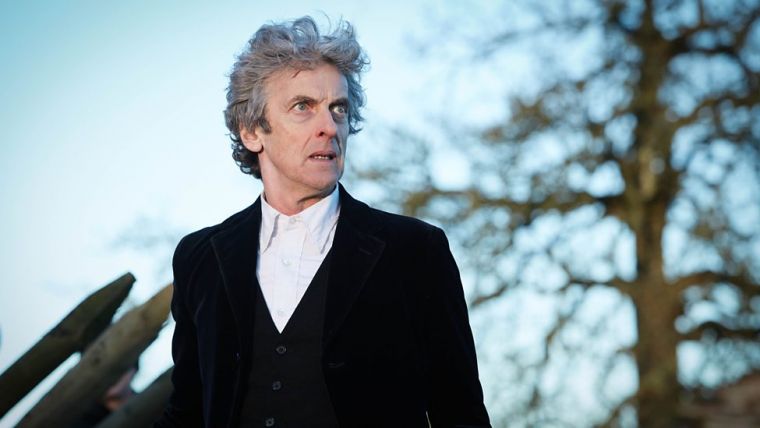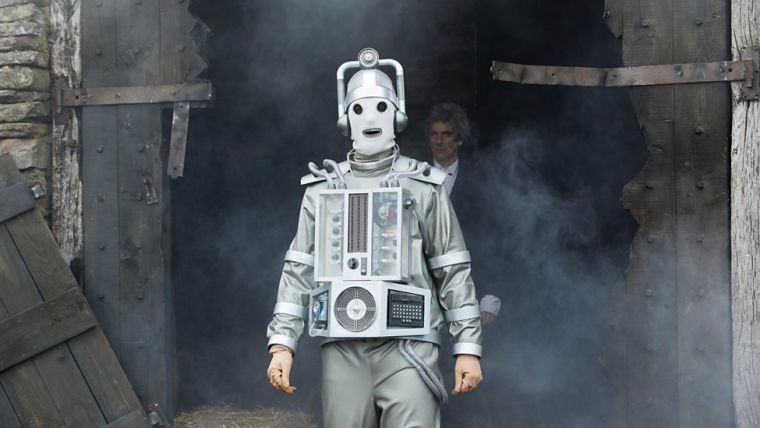Eternal life comes cheap: Why does Doctor Who have a problem with death?
It seems Doctor Who might have a problem with death.

The time-travelling British sci-fi hit is famous for its scares – and emotional heft – but it seems it can't do death. Who offers eternal life – but it comes too cheap.
It was borne out at the weekend, when Doctor Who aired the finale its tenth season (since its 2005 reboot) on Saturday. If you care about spoilers then as the Doctor would say: 'I'm so sorry.'
The dramatic climax saw the Doctor's companion Bill wrestle with her tragic fate: manufactured into one of the sinisterly soulless Cybermen. But unlike most victims Bill resisted part, retaining a semblance of her human identity despite having her body made into metal.
Ultimately though we were warned her fate was clear – you can't un-become a Cyberman. Except, she kind of did. In an emotional twist, Bill is saved by Heather, her cosmic love-interest from this season's pilot. Somewhat inexplicably (but this is a show about time-travel) Bill is no longer dead, and is told she can either return to her bodily form, or travel eternity with Heather. Bill opts for the latter because who wouldn't. So she died – but not really.
Some have said that though this is something of a 'magic wand' that nullifies the threat of death, it works for the character. It feels right. Maybe it does – but I've lost count of the number of characters Doctor Who has killed off – only to save them again.
It's something outgoing showrunner Steven Moffat has been criticised for: his major characters almost never die and stay dead. They don't face real consequences, and while they don't die, the drama does.
They face what looks like the end, but a sci-fi loophole somehow restores them, if not fully to the life they lived before.
But credit to Moffat, he's now told us why. He explained Bill's ambiguous non-demise to Doctor Who: The Fan Show – The Aftershow:
'I don't think she is dead. She doesn't die. I don't think Doctor Who is that kind of show. Doctor Who is a big-hearted, optimistic show that believes in kindness and love and that wisdom will triumph in the end. I don't believe it's the kind of show that says there are bitter, twisted, nasty endings because it's not.
'It's not gritty, it's aspirational. It says, "It can work. And wisdom and kindness will triumph. And love will always come through in the end." I think there aren't enough people or enough shows saying that and I'm damned if Doctor Who is going to join in with the general chorus of despair.

'So, she doesn't die. She nearly dies and becomes something else.'
It's a fascinating explanation from Moffat, and one I sympathise with. In these strange, cynical times, we could all do with tales to lift us up. And of course, it might seem a little odd for a Christian publication to be cheering for more pain, blood and death. After all, we're quite fond of eternal life. And we do believe in happy endings.
Some imagine Christianity to be just that: a happy ending (if you've been good) tacked on at the end of life. For me, it's far more to do with a story that engages the reality of this world whilst pointing to more than I can see. A life to live that wrestles with both joy and pain, promising hope today in its midst, not just after death.
But Moffat's universe is an alternative Eden: a world without death. Who knows such a world, with no cost? True humanity needs hope, but it needs the truth too. And who can ignore the truth of life's one certainty? The Christian story promises death restored and redeemed, but not ignored. The cross of Christ leads to life, but it still needs to be carried.
Jesus raised Lazarus from the dead – but not before he wept. It's no small thing, but there's a beauty, honesty and wisdom in learning to face life's pain.
This isn't a hit-job: there's much to applaud in Moffat's stories and the world of Doctor Who. I adore its capacity for transcendence, for how it delights in the ordinary and everyday (like an old Police-Box in the corner of your eye) as a pathway to mystery, wonder and a reality bigger than we ever imagined. Its titular hero frequently embodies a life of love, grace and Messianic self-sacrifice.
The show's creators are atheists, not trying to push God into their stories, but for my money they artfully portray a world where evil is real, but good wins out in the end. A tale of cosmic forces at war, where nobody's unimportant. And a world where, as Moffat says: 'It can work...wisdom and kindness will triumph. And love will always come through in the end.'
Christians should be all about hope. But like faith, hope isn't blind – it knows cost too. The best stories give us both. If we can't grieve, we can't grow. If we never lose, we'll never truly live.
You can follow @JosephHartropp on Twitter











